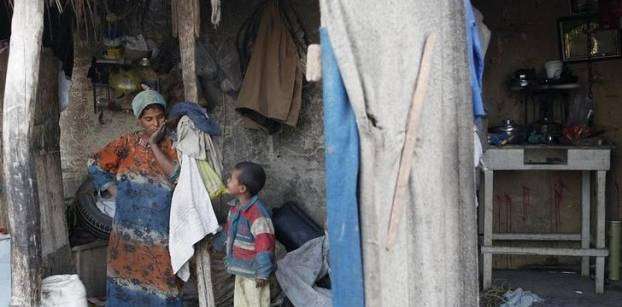Egypt's reform measures turn into 'economic war on poor' - Rights group

Reuters
CAIRO, Nov 7 (Aswat Masriya) - The absence of serious precautionary measures has turned the recent economic reform decisions into an "economic war" on poor citizens, a statement issued on Monday by the Egyptian Center for Economic and Social Rights (ECESR) read.
Egypt’s central bank announced on Thursday the floatation of the Egyptian pound before the government decided to raise energy prices by 30-47 per cent in a bid to meet the criteria for a $12 billion loan from the International Monetary Fund.
"Authorities in Egypt and financial institutions dealt with the crisis in a way that didn't take the ordinary citizens, who will face great pressure as a result of these policies, into consideration," the statement read.
The ECESR statement also addressed the consequences of the measures saying that the government "didn't announce any social protection alternatives except decisions with "limited effect".
The government decreased the age of those receiving the pension benefits from 65 to 60 years. It also announced increasing the amount allocated to individuals holding food subsidy cards from EGP 18 to EGP 21 starting next month in an attempt to compensate for price hikes.
Only two days after the government abandoned its US dollar peg, Egyptian pound dropped to almost 17 to dollar.
The statement also discussed fears of high inflation saying that the most optimistic forecasts expect a 20 per cent inflation rate by the end of the year, with expectations to reach 30 per cent by mid next year.
Last week's decisions came in the context of the government's economic reform program that aims to reduce the budget deficit and the public debt.
It happened few days after the black market rate for dollars surged to unprecedented highs reaching roughly EGP 18.25, when the official rate was maintained at EGP 8.8.
The statement said the widening gap between the black market and the official rate was a reflection of the government's "deteriorating economic performance" saying there's no sign of a new vision to improve this performance.
Several pundits and experts have suggested that limiting imports would help solve the currency problem. The center however said this policy would be ineffective as imports "don't count as a luxury to Egypt's economy but a necessity" with 74 per cent of the import activities focusing on production inputs as fuel and raw material.
"November 3 decisions could raise poverty rates to unprecedented levels in Egypt's history as the government didn't address the implementation of measures that would raise incomes, like providing payroll tax cuts, as if it's deliberately pushing the middle class into poverty," the statement added.
Over 27 per cent of Egypt's population live below the poverty line, which stand at EGP 5787.9 annually and 482 monthly, according to a report issued by the Central Agency for Public Mobilisation and Statistics in October.









facebook comments